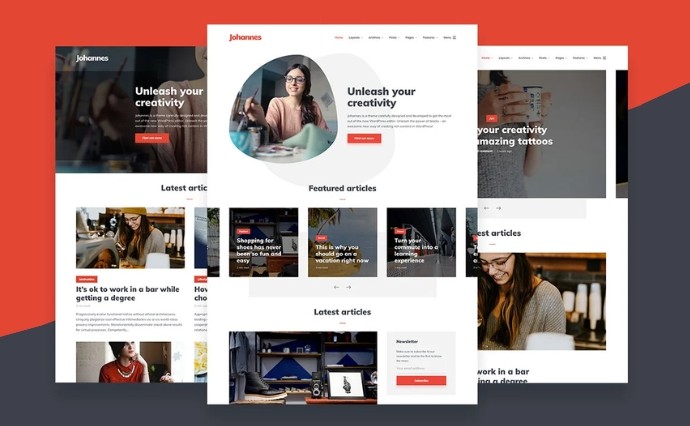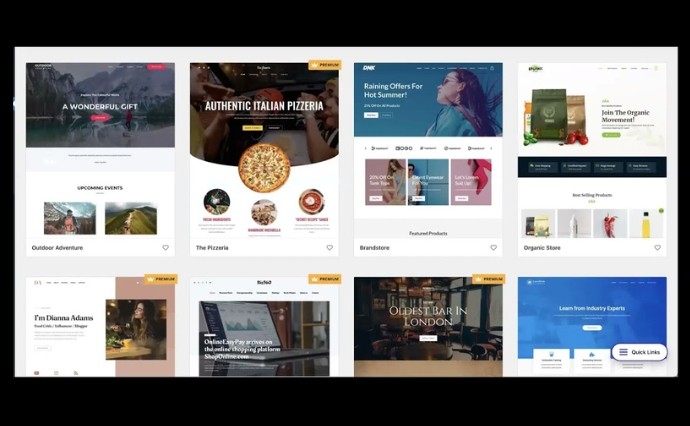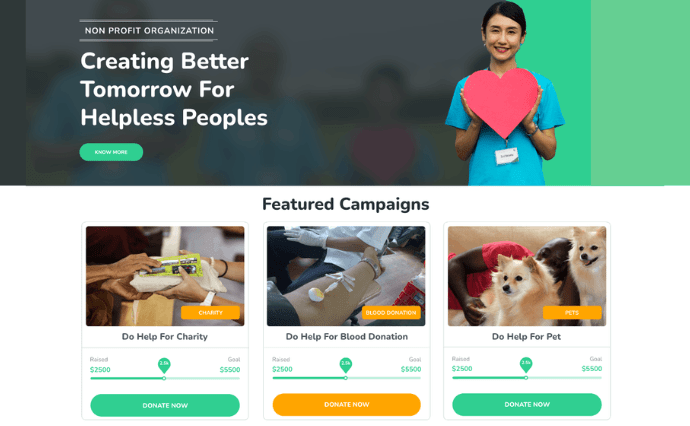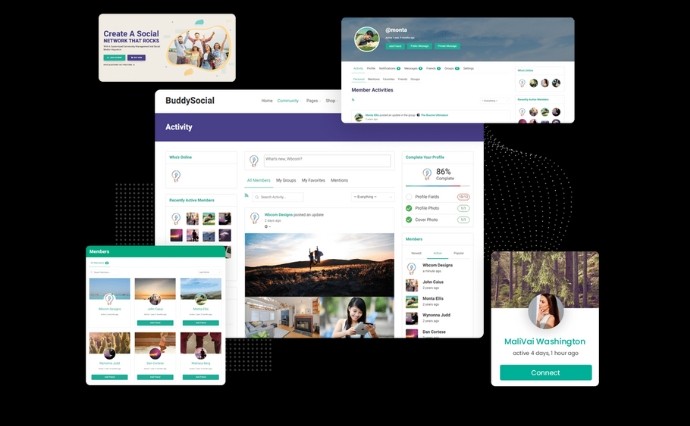WordPress website designing refers to the process of creating and designing websites using the WordPress content management system (CMS). WordPress is a popular and widely-used platform that allows users to build and manage websites with ease, even without extensive coding knowledge.

WordPress provides a range of design options, themes, and plugins that make it accessible for users to create visually appealing and functional websites. Website designing with WordPress involves several key steps:
Choosing a WordPress Hosting Provider: To start, you need to select a hosting provider that supports WordPress. This will ensure your website is accessible on the internet.
Installing WordPress:
Most hosting providers offer a one-click installation process for WordPress. This allows you to quickly set up the CMS on your hosting server.
Selecting a Theme:
WordPress offers a vast collection of themes, both free and premium, that determine the overall look and layout of your website. Choose a theme that aligns with your brand identity and website goals.
Customizing the Design:
Once you’ve selected a theme, you can customize it to match your specific requirements. WordPress provides a user-friendly interface where you can modify the colors, fonts, page layouts, and other design elements to create a unique look for your website.
Adding Content:
With the design in place, it’s time to add content to your website. WordPress offers a straightforward content management system, allowing you to create pages, blog posts, and other types of content easily. You can format and style your content using the built-in editor or popular page builder plugins.
Extending Functionality with Plugins:
WordPress offers an extensive library of plugins that allow you to extend the functionality of your website. Plugins can add features like contact forms, social media integration, SEO optimization, e-commerce capabilities, and more. Choose and install the plugins that align with your website’s goals and requirements.
Testing and Launching:
Before launching your website, thoroughly test its functionality and design across different devices and browsers. Ensure that all links work correctly, forms submit successfully, and the overall user experience is smooth.
Regular Maintenance and Updates:
Once your website is live, it’s important to regularly update WordPress, themes, and plugins to ensure security and compatibility with the latest technologies. Additionally, monitor your website’s performance, optimize for speed, and regularly backup your data to prevent any potential issues.
WordPress website designing provides flexibility, scalability, and a user-friendly interface, making it an ideal choice for individuals, small businesses, and even large enterprises. Whether you’re creating a simple blog or a complex e-commerce site, WordPress offers the tools and resources to bring your website design vision to life.
Types of WordPress Website Designing
There are several types of WordPress website designing, each tailored to specific needs and goals. Here are some common types of WordPress websites:
Blogging Websites:
WordPress initially gained popularity as a blogging platform, and it remains a popular choice for bloggers. Blogging websites focus on content creation and typically include features such as blog posts, categories, tags, commenting systems, and RSS feeds. WordPress offers a range of themes and plugins designed specifically for bloggers, making it easy to create and manage a blog.

Business Websites:
WordPress is widely used for creating business websites, providing an effective platform for showcasing products, services, and company information. Business websites often feature multiple pages with sections for home, about, services, testimonials, contact, and more. They may integrate features like contact forms, maps, customer reviews, and e-commerce capabilities for online sales.

E-commerce Websites:
WordPress, combined with dedicated e-commerce plugins like WooCommerce, allows you to create robust online stores. E-commerce websites include product catalogs, shopping carts, secure payment gateways, inventory management, and order tracking systems. With WordPress, you can build and customize an e-commerce website to sell physical or digital products, services, subscriptions, or memberships.

Portfolio Websites:
Artists, photographers, designers, and creative professionals often use WordPress to showcase their work through visually appealing portfolio websites. These websites focus on highlighting images, videos, and creative projects. WordPress offers themes and plugins specifically designed for portfolio websites, allowing users to create stunning galleries and portfolios to showcase their skills and expertise.

Nonprofit Websites:
Nonprofit organizations can benefit from WordPress’s versatility and cost-effectiveness. Nonprofit websites typically include sections for mission statements, projects, events, donation forms, volunteer sign-ups, and integration with fundraising platforms. WordPress’s easy-to-use features and donation plugins make it an ideal choice for nonprofit website design.

Community Forums and Social Networks:
WordPress can also be used to create community forums and social networking websites. By combining WordPress with plugins like BuddyPress, bbPress, or other community-building tools, you can create platforms where users can engage in discussions, share content, create profiles, and connect with like-minded individuals. Social Networks are a web-based service that focuses on building online communities of people who share interests and activities or who are interested in exploring the interests and activities of other.

Membership Websites:
Membership websites are designed to provide exclusive content, courses, or services to registered members. WordPress offers membership plugins that allow you to control access to content, manage subscriptions, and provide personalized experiences for different user levels. Membership websites can be used for online courses, paid content, community platforms, and more.

These are just a few examples of the types of websites that can be created using WordPress. The flexibility and versatility of WordPress, combined with its extensive library of themes and plugins, make it a powerful platform for various website design needs. Whether you’re a blogger, business owner, creative professional, or nonprofit organization, WordPress offers the tools and resources to build a website that suits your specific requirements.
